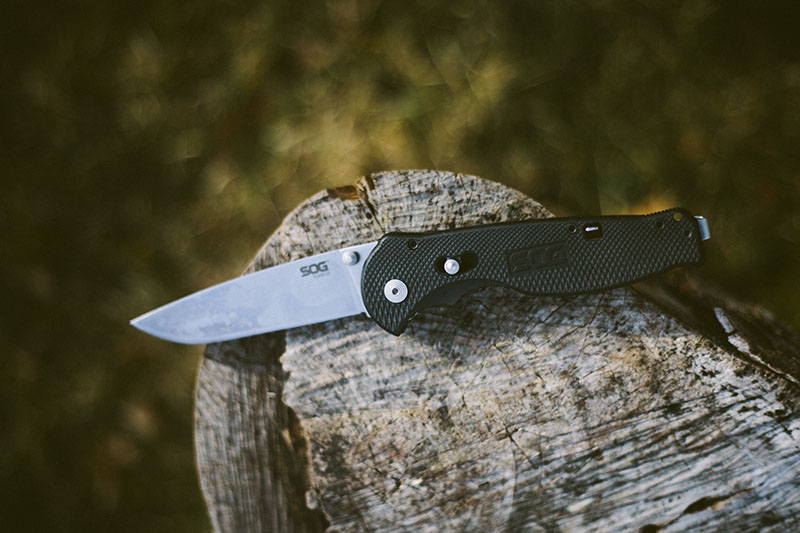Japanese folding knives are renowned for their precision and exceptional craftsmanship, making them a prized possession for kitchen professionals around the world. These knives are not just tools; they are an extension of the chef's hand, crafted with care and designed for perfection.
The tradition of Japanese folding knives dates back centuries, where artisans mastered the art of creating blades that are both functional and aesthetically pleasing. These knives are a testament to the meticulous attention to detail and the pursuit of excellence that defines Japanese craftsmanship.

The Legacy of Japanese Craftsmanship
The history of Japanese knives is deeply intertwined with the culture and traditions of Japan. The techniques used to create these knives have been passed down through generations, resulting in blades that are not only sharp but also durable and reliable. The folding knife, in particular, is a masterpiece of engineering, combining the benefits of a fixed blade with the convenience of a foldable design.
Japanese folding knives are made using high-quality steel, often layered to create a strong yet flexible blade. This not only ensures a sharp edge but also provides resilience against wear and tear. The handle of these knives is typically crafted from materials like wood or bone, adding to the knife's aesthetic appeal and providing a comfortable grip.
Why Kitchen Professionals Choose Japanese Folding Knives
For kitchen professionals, the choice of tools is crucial to their craft. Japanese folding knives offer several advantages that make them a preferred choice in busy kitchens:
- Precision Cutting: The sharpness of a Japanese folding knife allows for precise cuts, whether you're slicing sashimi or chopping vegetables. This precision is essential for maintaining the integrity of the ingredients and ensuring even cooking.
- Versatility: The folding design makes these knives easy to carry and store, making them ideal for chefs who travel or work in small kitchens. Despite their compact size, they offer the same functionality as a larger knife.
- Durability: The high-quality materials used in Japanese folding knives ensure that they can withstand the rigors of a professional kitchen. They maintain their sharpness longer and are less prone to rust and corrosion.
For more insights on the durability and strength of folding knives, you can read about the strength of frame locks used in their construction.
The Design and Engineering Behind Japanese Folding Knives
Japanese folding knives are a blend of traditional techniques and modern engineering. The blade is often crafted using a combination of different steels, creating a blade with a hard edge and a softer spine. This not only enhances the knife's cutting ability but also ensures a degree of flexibility, preventing the blade from chipping or breaking.
The handles are designed for comfort and control, often featuring ergonomic shapes that fit naturally in the hand. Materials like ebony, rosewood, and magnolia are commonly used, each adding a unique character to the knife. For more on the aesthetic appeal of different handle materials, visit our blog on wood handle folding knives.
Maintenance and Care
To maintain the performance and longevity of a Japanese folding knife, proper care is essential. Regular sharpening is necessary to keep the blade in top condition. It's also important to clean and dry the knife after each use to prevent rust and corrosion.
Many professionals opt for a blade regrind service to restore the knife's edge to its original sharpness. Additionally, storing the knife in a protective sheath or case will prevent damage and ensure safety.
The Cultural Significance of Japanese Folding Knives
Beyond their practicality, Japanese folding knives hold a cultural significance. They are often seen as a symbol of precision and dedication to one's craft. The process of creating these knives is steeped in tradition, with artisans dedicating years to perfect their skills.
The knives are not just tools but an expression of the artistry and dedication that define Japanese culture. This cultural heritage makes them a cherished item among collectors and culinary professionals alike.
For more on different types of pocket knives and their uses, check out this comprehensive guide on types of pocket knives.
Choosing the Right Japanese Folding Knife
When selecting a Japanese folding knife, it's important to consider the specific needs of your kitchen. The size, shape, and material of the knife should align with the type of cooking you do. Whether you're a sushi chef or a pastry chef, there's a Japanese folding knife designed to meet your needs.
Consider the handle material, blade length, and type of steel used in the knife. These factors will influence the knife's performance and suitability for different tasks.
Conclusion
In the world of culinary arts, the right tools can make all the difference. Japanese folding knives offer a unique combination of precision, durability, and elegance that makes them an invaluable asset in any kitchen. For kitchen professionals, these knives represent more than just a tool; they are a testament to the artistry and dedication that define their craft.
For further reading on high-end folding knives, you can explore more in this article about high-end folding knives.

FAQs
Q1: What makes Japanese folding knives unique?
A: Japanese folding knives are unique due to their precise craftsmanship, high-quality materials, and the combination of traditional and modern techniques used in their creation.
Q2: How should I care for my Japanese folding knife?
A: Proper care includes regular sharpening, cleaning and drying after use, and storing it safely to prevent damage.
Q3: Are Japanese folding knives suitable for all kitchen tasks?
A: Yes, they are versatile and can be used for a variety of kitchen tasks, but it's important to choose the right size and style for your specific needs.
This article contains affiliate links. We may earn a commission at no extra cost to you.


























